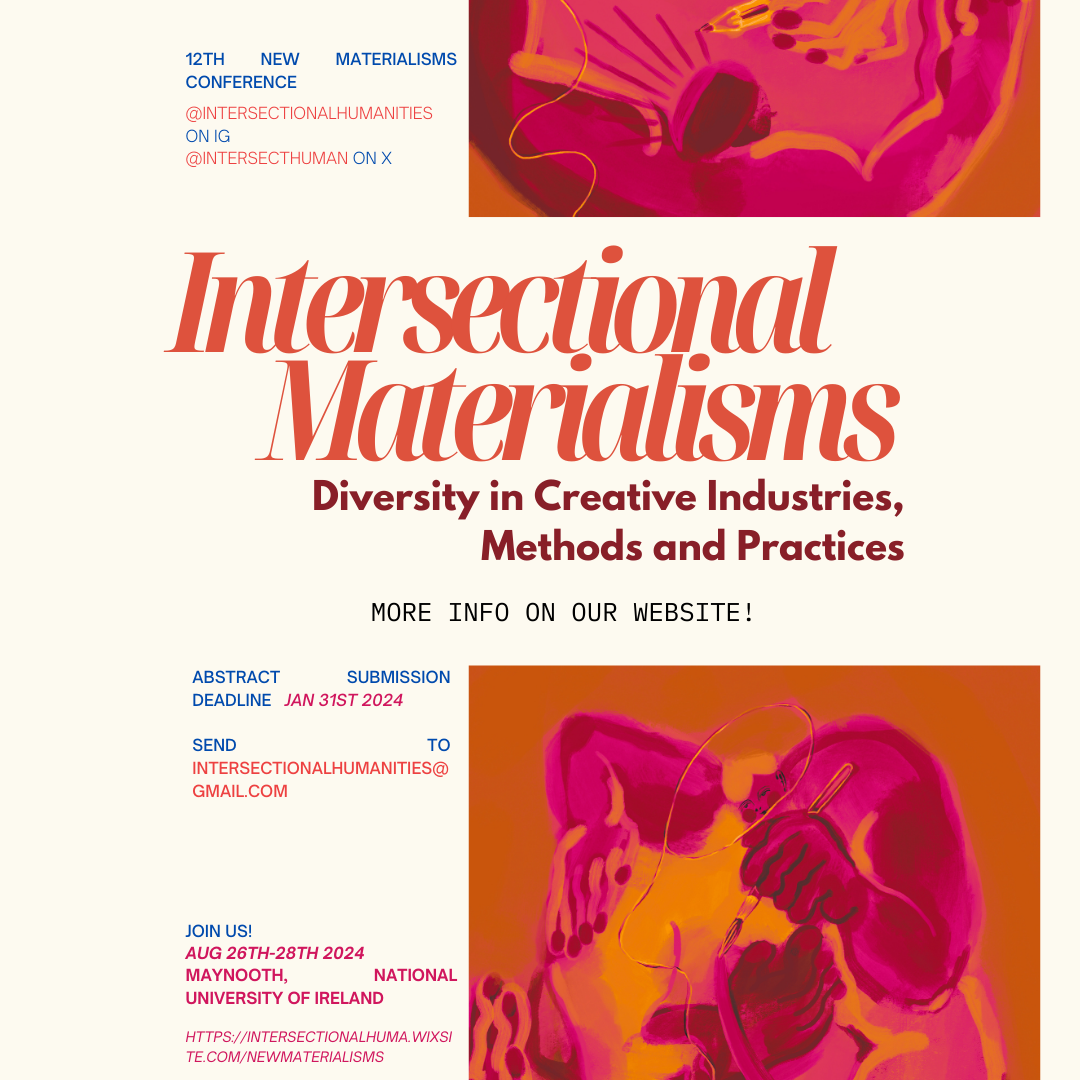-

12th New Materialisms conference at Maynooth University, Ireland
Intersectional Materialisms: Diversity in Creative Industries, Methods and Practices Finally it is here! We are very proud to announce the upcoming 12th New Materialisms conference, […]
-

CFP: Values at Sea: Marine Science Studies Meets Blue Humanities
For a full description: https://marinesciencestudies.co.uk/call-for-papers/ Our colleagues, Elis Jones, Jose A. Cañada, and Sabina Leonelli, are guest editing a topical collection, “Values at Sea: Marine […]
-
Deadline 28 Feb. Call for papers: ‘Recentring the Region’
July 4-7, RMIT University and Deakin University, Melbourne A partnership between ASAL (Association for the Study of Australian Literature) and ASLEC-ANZ (Association for the Study […]